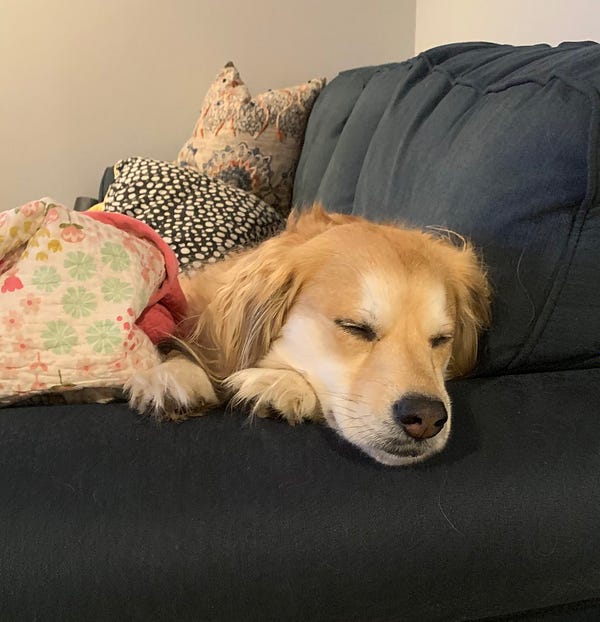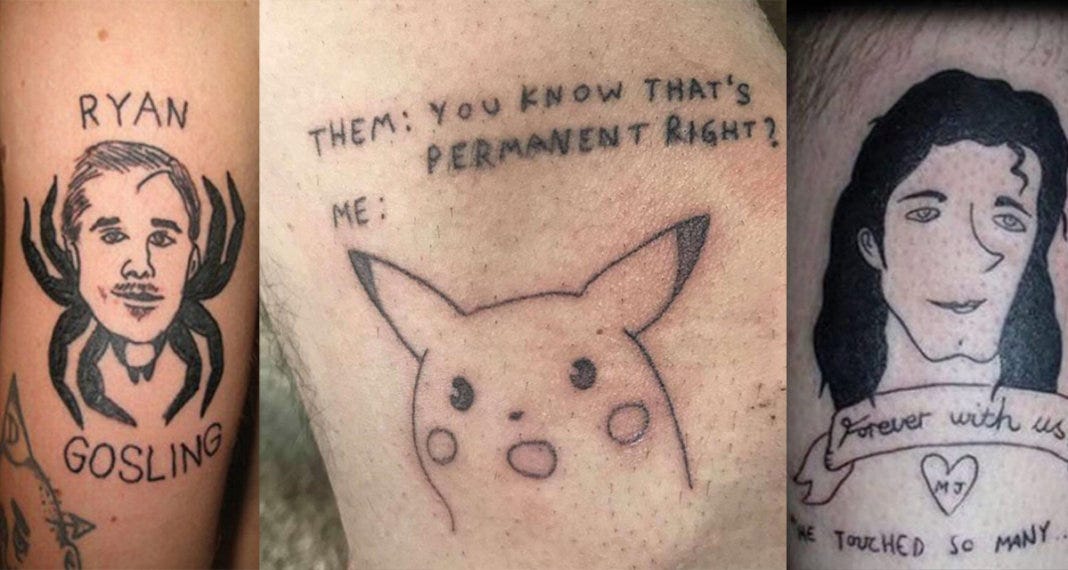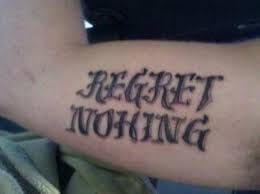Episode 11: Bipolar 101 plus genealogical psychology
And some pictures of bad tattoos and sleepy dogs
Latest episodes and previous episodes but I’m using “episode” in different contexts
There is a sharp and beautiful pain that comes with decoding a person who has passed on. I mean to say figuring out why a person was in pain after the point they no longer are in pain, or in pleasure, or in anything. It’s almost whimsical: you know the problem - or at least one of the problems - they were facing but it’s far too late to help them unlock the issue so they can get better. It’s a version of watching an avalanche, waiting for all the rocks to settle and then saying, “Avalanche!” in a kind of stage whisper.
In this week’s episode, I was joined once again by Dr. Ken Duckworth from NAMI. The topic of the episode is bipolar disorder and what I didn’t know when we booked him was his close relationship to the topic. Ken’s father dealt with something that Ken originally would refer to as manic depressive illness and what is now called bipolar 1. Ken’s dad was a salesman and Ken would realize only in medical school that his dad would win huge trophies for his sales accomplishments in the years before he was admitted to a psychiatric hospital. So Ken realized that the behavior associated with the manic episodes - relentless energy, lack of sleep, grandiosity - were tremendous assets to a kind of inhuman sales machine. But that kind of energy and lifestyle is unsustainable so the incredible sales years would be followed by institutionalization.
When my own father was alive, I came to understand something when I was 16 or 17 years old: that his drinking was not moderate. I realized that he had a problem with drinking, that he used it every night to get to the point of not feeling anything. For many years, I didn’t bother to think of the reasons why he might be doing that beyond foolishness. He got hooked, shouldn’t have, should just stop it. It was a simplistic worldview. There was never a question of why he drank. The history of the phenomenon, in my mind, began when the vodka hit the lips. That was the big bang moment.
In fact, the drinking was not the big bang, it was the fragmented chunks of matter forming into planets and methodically orbiting stars. When I learned more about trauma, when my own traumas forced me into learning about them, I could decode Dad a lot more. And when I learned more of his family history, especially in writing my most recent book, a logical thread began to form. His father left his own Norwegian village in the 1920s because he didn’t fit in there. My grandfather’s brothers were a cheerful, musical, comedic group, a kind of Norwegian Osmonds, but Conrad (my grandfather) was dour and gloomy. He was depressed, obviously.
Conrad moved to Oslo and eventually got a woman pregnant and thus had to marry her. The couple did not like each other and the child was my dad who had to grow up with that. Then the Nazis invaded and a whole new sort of trauma soaked into everything. When my dad was a teenager in the army, shortly after the war, he was abroad and learned that his father had died of a heart attack sitting at his desk at a printing company.
So much pain my dad had been through. Kind and qualified therapists were not available. Vodka and cigarettes were. And so he went that route. Which made so much more sense than “he just drank”. I pieced his addiction together relatively recently. Erling Moe, my father, died in 1999.
Caught in the tsunami
There is no shortage of analogies to the mental health crisis we are in. But there’s a huge shortage of help.
Brutal essay by Jasmin Iolani Hakes.
My 20-year-old daughter tried to kill herself three weeks ago. She took a lot of pills all at once and, afraid that wouldn’t do the trick, drove toward the American River to drown herself. Her boyfriend happened to drive past her car and waved her down. That serendipity is the only reason she’s alive today.
My family isn’t alone in being affected by the failures of a non-system. Of our rising mental health problems — suicides, homelessness — doctors use the word “tsunami.” On average, says the National Alliance on Mental Illness, one person dies by suicide in the U.S. every 11 minutes.
Maybe it’s a mental health thing? Or probably not?
I started a Twitter thread that now has 263 responses. It’s about dogs who are sleeping or just pretty tired. I enjoy these photographs.


Tattoo update!
Back in May during the Max Fun Drive, I promised to get a tattoo if we hit a thousand donors. We did and I will. I’ll be visiting Portland, Oregon this summer and stopping into Lorin Devine’s studio to get the Double Tragedy. It’s the traditional comedy-tragedy masks but they’re both tragedy because I think that’s funny.
My 13yo daughter will be with me and has offered to provide livestreaming services.
I’m never disappointed by a Google search for bad tattoos.
The thing everyone’s talking about
I’ve been watching Bo Burnham’s Netflix special Inside. I find it hard to get through more than about ten minutes at a stretch, which bodes ill, but I keep coming back to get more ten minute stretches, which bodes well. I’m curious to know what y’all think.





